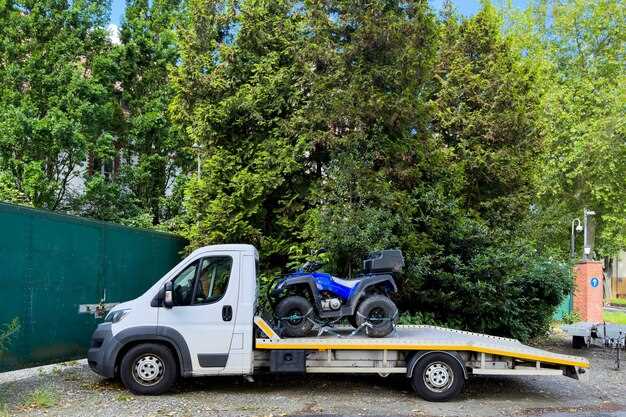
The advent of electric vehicles (EVs) has significantly altered the landscape of transport, particularly concerning trailer towing capacity. As more consumers transition from traditional gas-powered vehicles to EVs, understanding the implications of this shift is crucial for both manufacturers and users. The unique characteristics of EVs, such as their torque delivery and weight distribution, play a crucial role in determining how effectively these vehicles can tow trailers.
One of the primary advantages of electric vehicles is their high torque output, which is available almost instantly. This feature can enhance the towing experience, allowing EVs to manage heavy loads more efficiently. However, potential users must also consider factors such as battery capacity and overall vehicle weight when assessing the towing capabilities of EVs. The balance between range and towing capacity becomes particularly relevant, especially for those who plan to use their EVs for work or recreational purposes involving trailers.
Furthermore, advancements in technology and battery design are continuously shaping the way electric vehicles perform under load. As manufacturers innovate and enhance the towing capacities of EVs, it becomes imperative for consumers to stay informed about their options. By examining the current capabilities and future potential of EVs in trailer towing, this article aims to provide a comprehensive overview for those considering the switch to electric while maintaining their trailer usage.
Understanding EV Towing Specifications and Limitations
Electric vehicles (EVs) have gained significant traction in the automotive market, especially as their technology evolves. When considering the use of an EV for towing purposes, it is crucial to understand the specifications and limitations that come with these vehicles. EV towing capacity is often defined by the manufacturer and is influenced by several factors, including the vehicle’s battery size, motor power, and overall design.
One of the primary specifications to consider is the gross vehicle weight rating (GVWR), which indicates the maximum weight the vehicle can safely tow. This encompasses both the weight of the trailer and its cargo. EVs are generally equipped with robust electric motors that can provide high torque, making them capable of towing heavier loads compared to traditional combustion engines. However, the towing capacity may vary significantly between different models based on their design and intended use.
Another vital aspect is the impact of towing on an EV’s range. When an EV is used for towing, the additional weight can lead to increased energy consumption, which directly affects the vehicle’s range. It is essential for users to consider how much towing they plan to do and calculate whether the EV’s battery capacity can accommodate their needs without frequent recharging.
Furthermore, it is important to recognize the limitations associated with EV towing. Some electric models may be limited in their towing capacity compared to gas-powered counterparts, primarily due to their battery systems and cooling requirements. Additionally, factors such as terrain, aerodynamics, and payload can also affect performance while towing.
In summary, understanding EV towing specifications involves evaluating the vehicle’s towing capacity, the impact on range due to added weight, and recognizing inherent limitations. Prospective EV users should carefully research specific models to ensure they meet their towing needs effectively and safely.
Practical Considerations for Choosing the Right Trailer for EVs

When selecting a trailer for use with electric vehicles (EVs), several factors warrant careful consideration to ensure compatibility and performance. The weight of the trailer is a primary concern; it directly impacts the EV’s towing capacity and range. Choose a trailer that is lightweight and well within the EV’s specified towing limits to prevent overloading the vehicle.
Additionally, the trailer’s design should complement the aerodynamics of the EV. A streamlined design can reduce drag, improving the overall efficiency of the electric vehicle while towing. Consider a trailer with a lower profile and a shape that minimizes wind resistance.
Braking systems are another critical element. Ensure that the trailer is equipped with an effective braking system, particularly if it’s heavier or larger. This feature enhances safety, as the braking performance of the EV may differ under load.
Consider the type of materials used in the trailer construction. Lightweight materials, such as aluminum or composite, can significantly reduce the overall weight, which is beneficial for EVs as it helps maintain their driving range.
Finally, think about the type of cargo you plan to transport. Ensure the trailer is designed for the specific loads and is accompanied by the necessary equipment, such as tie-downs and wheel chocks, to secure the load safely during transport.
Real-World Performance: EVs vs. Traditional Vehicles in Towing Scenarios

The growing presence of electric vehicles (EVs) has sparked interest in their towing capabilities compared to traditional gasoline or diesel-powered vehicles. When assessing the real-world performance of EVs, several factors come into play, particularly when it comes to trailer towing. EVs often have impressive torque characteristics, delivering power instantly, which can benefit towing scenarios by providing smooth acceleration.
One significant advantage of electric vehicles is their ability to maintain performance under load. Unlike conventional vehicles that may struggle with power loss as they tow heavier trailers, many EVs can utilize their electric motors’ consistent torque to pull weights effectively. This can be especially advantageous when navigating inclines or uneven terrain where traditional engines may face limitations.
Range is a critical aspect in towing; however, it poses unique challenges for EVs. While traditional vehicles can cover long distances on a single tank of fuel, towing with an EV can significantly reduce its range due to the added weight and increased energy consumption. Users must consider their towing needs and plan charging stops accordingly to avoid unexpected interruptions on longer trips.
Additionally, the availability of towing accessories specifically designed for EVs is expanding, allowing users to adapt their electric vehicles for various trailer types. While some traditional vehicles still dominate in heavy-duty towing scenarios, the performance of newer EV models is closing the gap, offering greater towing capacities than ever before.
In conclusion, while both electric and traditional vehicles have their strengths and weaknesses in towing scenarios, the decision ultimately depends on the specific needs of the user, intended use, and the type of trailer being towed. As technology advances, EVs are likely to continue improving their towing capabilities, making them a more viable option for a wider range of towing applications.





